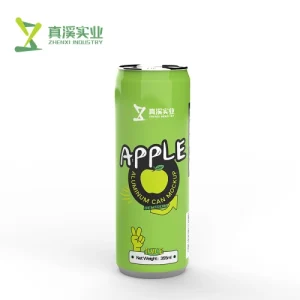The Sustainability Profile of Aluminum Cans
Aluminum cans are a staple in beverage packaging, popular for their convenience and durability. But their real value may lie in their sustainability. Made from 100% recyclable material, aluminum cans boast a recycling rate of about 68% in the United States, the highest of any beverage container. This impressive statistic underscores aluminum's role as a leader in sustainable packaging solutions.
Recycling Efficiency and Energy Savings
Recycling aluminum saves energy: Manufacturing aluminum cans from recycled material uses 95% less energy than producing them from raw bauxite ore. This significant reduction in energy consumption is crucial for reducing the carbon footprint associated with manufacturing processes. It's estimated that recycling aluminum saves around 90 million tons of CO2 annually, equivalent to removing nearly 20 million cars from the road for one year.
Lifecycle and Reusability
Aluminum's lifecycle further enhances its eco-friendly credentials. Unlike other packaging materials that degrade in quality after recycling, aluminum can be recycled indefinitely without loss of properties. This means that an aluminum can could go from a recycling bin back to a store shelf within just 60 days, completing a true closed-loop recycling process.
Impact on Resource Conservation
Using recycled aluminum also helps conserve natural resources. The process of mining bauxite is not only energy-intensive but also environmentally invasive, leading to deforestation and soil erosion in many parts of the world. By recycling aluminum cans, we reduce the demand for raw materials, thereby minimizing environmental disruption and preserving the ecosystem.

The Carbon Footprint of Aluminum Can Production
Despite the benefits, the production of aluminum cans is not without its environmental impacts. The production process, even when using recycled material, involves significant energy use, contributing to greenhouse gas emissions. However, ongoing advancements in technology are continually improving the efficiency of these processes, aiming to further reduce the carbon footprint of aluminum can production.
Innovations Enhancing Sustainability
Innovations in aluminum can manufacturing are paving the way for even greener packaging solutions. New alloys are being developed that can further reduce the weight of cans without compromising strength, leading to lower transportation costs and additional reductions in carbon emissions. Additionally, many manufacturers are investing in renewable energy sources to power their production facilities, striving for even greater sustainability.
The Role of Consumers and Industries
Consumers play a pivotal role in the recycling process. The high recyclability of aluminum offers little environmental benefit if the cans are not properly recycled. Consumer education and effective community recycling programs are crucial for maximizing the eco-friendliness of aluminum cans. Similarly, industries can contribute by implementing responsible sourcing and production practices, ensuring that the potential of aluminum as an eco-friendly material is fully realized.
Choosing Aluminum for Eco-Friendly Packaging
In conclusion, aluminum cans represent a highly sustainable packaging choice, particularly when the rates of recycling and reuse are maximized. As industries continue to innovate and improve production and recycling technologies, aluminum stands out as a material that can significantly aid in the transition to more sustainable consumption patterns. Whether packaging a Coffee Drink or any other beverage, choosing aluminum is a step towards environmental responsibility.